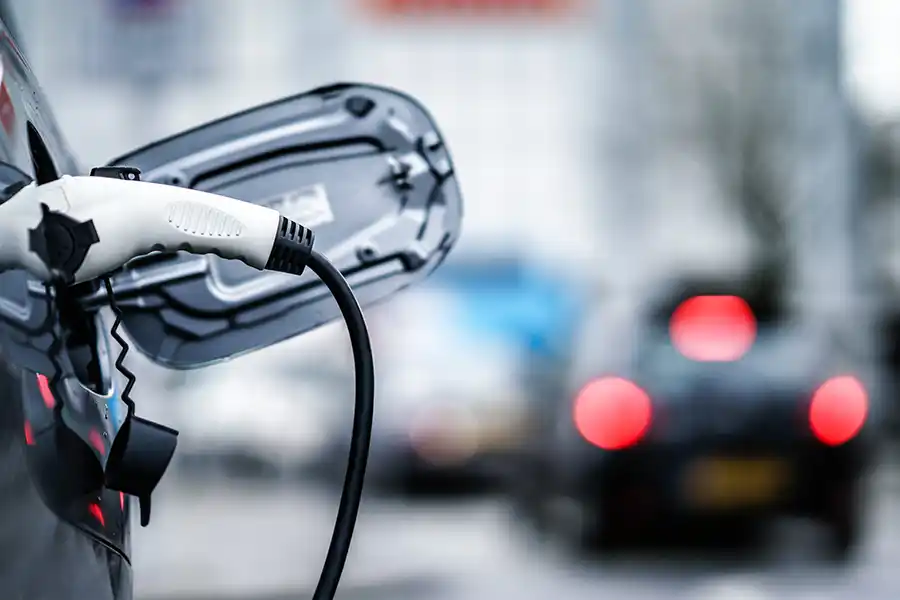S h a r e
The date may have changed but the direction of travel remains certain


Posted by
Andy Bruce
September 2023
It was certainly disappointing to hear that the Government’s ban on the sale of new petrol and diesel cars is to be moved back from its original cut off date of 2030 to 2035.
Certainly it must be frustrating for those who have invested heavily to meet the 2030 deadline – fleets, car makers, infrastructure suppliers, the training of after sales technicians and so on.
But I understand the point that not everyone is fully ready for such a change, that a more fully developed used market for electric vehicles (EVs) would be more advisable, and that commercial vehicle fleets, in particular, are struggling to decarbonise at the same pace thanks to a combination of product availability and concerns about product suitability.
More broadly, it also aligns the UK with the EU ban on the sale of new petrol and diesel cars.
So where does that leave us?
Actually, I would argue that there is no real change, little actual deviation from the original course we were on.
The Environmental, Social and Governance (ESG) agenda remains key to most businesses in the UK, and that means fleet decarbonisation.
Company car drivers remain heavily incentivised to switch over to electric through generous personal tax allowances.
Companies save on fleet operating expenditure thanks to the better whole life costs of EVs.
Meanwhile salary sacrifice offers an ideal way for companies to provide electric cars to all its staff at a personal cost to employees that is far lower than if they were to lease an EV personally, while benefiting from the far cheaper running costs of EVs.
And those cash for car allowance drivers, finding that their allowance doesn’t reach to the level of car it once did under a personal lease, are now either returning to the company car with an EV, or taking up the offer of a salary sacrifice electric car.
So nothing changes the underlying structural reasons that have underpinned an already significant move to electrification – 53% of new cars supplied by leasing companies are zero emission vehicles according to the BVRLA.
And crucially, one of the key mechanisms to deliver zero emission vehicles is the Zero Emission Vehicle mandate, which requires car makers to sell an increasing percentage of zero emission cars. That commences 2024 with a 22% mix required and ratchets up thereafter (although we must be cautious about this – the Government could, as a result of its date change, alter the details of the mandate, too).
Then there are the car manufacturers themselves.
The car makers have invested millions in switching technologies and have structured production to meet electrification demands with an increasingly EV-led product range. Ford, for example, plans to be all-electric by 2030; Jaguar will relaunch as an all-electric brand in 2024; half of all BMW deliveries by 2030 will be electric; 100% of all Volvo deliveries will be electric by 2030; and so on.
As a business we remain fully focused on providing fleet electrification and planning to meet our EV100 commitment of electrifying our managed fleet of 30,000 vehicles by 2030. Our own Fleet Alliance company car fleet went fully electric in mid-2021.
So we remain fully focused on our customers, helping them through the process of fleet electrification, or providing an increasing number of companies with our salary sacrifice product – HFD Group being the most recent example.
And while Rishi Sunak mixes what many will see as political expediency with electrification proportionality, we’ll continue – unwavering – on our current direction of travel: and that’s electric.
You also might like…
If you liked this article then check out our posts about similar topics
First Drive: Why Audi’s Q4 e-Tron matters
The Company Car Sweet Spot for future-proofing your Fleet An Audi badge says professional without drifting into show-of...
First Drive: Jaecoo 7 – Range-Rover Looks on a £30k Budget
Why this newcomer matters China’s Chery Group is taking the UK by storm with a two-brand strategy: Omoda targets mains...
Good-enough lease rates aren’t good enough anymore: Introducing Multi-Bid Tendering
In a climate of persistent inflation, unpredictable tariffs and relentless cost pressure, “we’ve always done it this...
Become a Fleet Alliance business partner
I am writing to you about the opportunity to become a business partner of Fleet Alliance The commercial arrangement a...
Charting a Greener Course: Chris Rowthorn signs the Business Wales Green Growth Pledge
When seasoned automotive finance professional Chris Rowthorn left MotoNovo after more than two decades to become a Flee...
Outsourcing Your Fleet: 10 Reasons Fleet Alliance Makes Perfect Sense for Busy Fleet Managers
Running a large corporate fleet means you’re under constant pressure to hit cost, compliance, and sustainability targe...
What makes Fleet Alliance a winner in the SME fleet sector?
We all like an award, an additional trophy for the cabinet - the recognition is important and it’s always good to rece...
10 great cars to have on salary sacrifice 2025
Employers and employees are really catching on to salary sacrifice because you can drive a brand new electric car (EV) a...
Ready to make the management of your fleet more efficient?
Request a call back
